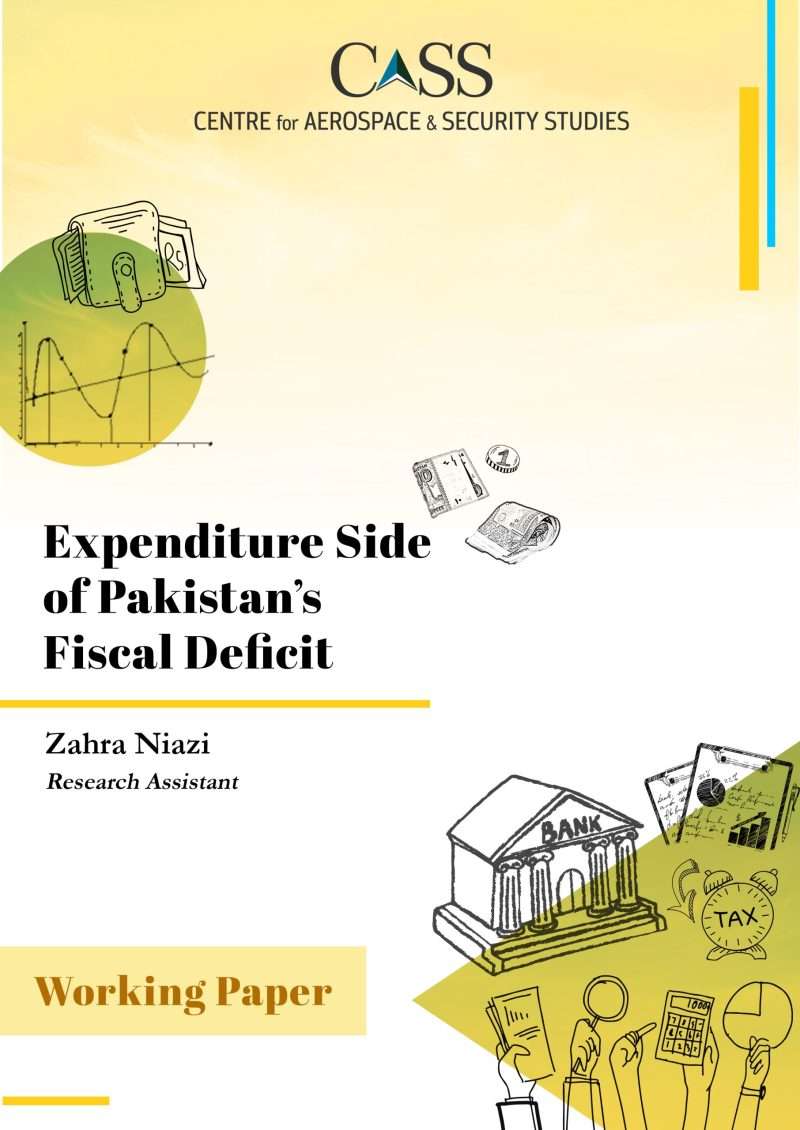To date, much of Pakistan’s fiscal consolidation efforts have focused on the revenue side of the budgetary deficit, while expenditure management has remained relatively neglected. Statistical modeling reveals that increases in both current and development expenditures contribute to a rise in Pakistan’s overall fiscal deficit. A review of the government’s budgetary allocations for FY 2024-25 and the past four fiscal years indicates significant potential for cost savings in government spending. The findings underscore the need to reduce the budgetary burden of mark-up payments through prudent debt management strategies, growth-oriented policies, and a data-driven approach to monetary policy. Furthermore, the study recommends reviewing defence spending, particularly employee-related expenses, to identify potential costsaving opportunities and implementing broad-based power sector reforms to alleviate the fiscal burden of subsidies. It also calls for rationalising expenditures under the Benazir Income Support Program (BISP) by enhancing administrative quality, strengthening monitoring mechanisms, and improving public service delivery. Further, the study suggests downsizing by eliminating or merging government departments and agencies with overlapping functions and closing redundant entities. Comprehensive pension reforms, informed by international best practices, are also recommended. Finally, the study advocates for more equitable allocations under the Public Sector Development Program (PSDP) and for minimising operational inefficiencies in both allocation processes and spending activities.

Share this article

Golden Dome: Capabilities and Constraints
In an era of novel threats, a layered defensive shield is once again at the centre of US strategy. The announcement of the Golden Dome by President Trump shortly after assuming office has given rise to new expectations, questions, and concerns regarding the project.
The capability is envisioned as a comprehensive missile shield for the continental United States (CONUS) against ballistic missiles, hypersonic vehicles, cruise missiles, and UAVs. Conceived as a multi-tiered system, it aims to integrate existing missile defences with new space-based platforms. The layered system, combining land, sea and space-based sensors

Trump’s Coercive Diplomacy: America’s Harder Turn
President Donald Trump renamed the Department of Defense (DOD) to the Department of War in September 2025. Then, just a month later, he threatened at least three countries with war. Trump’s economic war was waged on most states, in the form of tariffs, from the day he assumed office, but the threats and signalling toward an armed confrontation have been growing more frequent and explicit.

Do India- Bangladesh Relations Signal a New Strategic Front?
Amidst transforming regional security dynamics, India reinforced its eastern flank by establishing three fully operational military stations at strategic points around the ‘Siliguri Corridor’ near the India-Bangladesh border. The new bases include the Lachit Borphukan Military Station near Dhubri in Assam along with two forward bases at Chopra in West Bengal and Kishanganj in Bihar. Indian Army also reviews a fourth station in Mizoram as part of extended defence arc around the Siliguri corridor. Amidst deteriorating ties with Bangladesh, India’s fortification of its eastern

